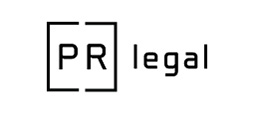In one of our previous texts (available here) we discussed misdemeanors, hence in order to analyze in more detail legislator’s penalty policy pertaining to legal entities we will here elaborate the economic offences which, along with criminal acts and misdemeanors, also fall into the penalty corpus of our legal system.
Specific nature of economic offences is reflected in the fact that they represent more severe law infringements than misdemeanors, but minor than criminal acts.
Economic offences in general
According to the definition included in the Law on Economic Offences (Official Gazette of SFRY, no. 4/77, 36/77 – corr., 14/85, 10/86 (consolidated text), 74/87, 57/89 and 3/90, Official Gazette of FRY, no. 27/92, 16/93, 31/93, 41/93, 50/93, 24/94, 28/96 and 64/2001 and Official Gazette of RS no. 101/2005 – other law) (“the Law”), economic offence is socially harmful infringement of regulations on economic or financial operation which caused or might cause more severe consequences and which is defined by an act of competent authority as economic offence. Legal entity and responsible person in a legal entity may be liable for economic offence.
Therefore, for the purpose of protecting legality in the field of economic and financial operation, the law regulates general terms and principles for imposition of penalties for economic offences, system of penalties and procedure for establishing liability and imposing penalties on perpetrators of economic offences.
However, the law does not stipulate individual acts that represent economic offences, as this is done in several other laws regulating economic and financial operation. For instance, economic offences are set out in the Law on Banks, Law on Food Safety, Law on Energy, Law on Capital Market, Law on Copyright and Related Rights, Law on Road Traffic Safety, Law on Accounting and many others.
The largest number of economic offences are done in the field of accounting and financial operation, while the practice of acting courts indicates that they mostly comprise of omission to submit regular annual financial statements and statement of inactivity for the last financial year.
Penalties for economic offences
As economic offences represent punishable conduct, the penalties prescribed for economic offences resemble those imposed for misdemeanors and criminal acts, but their number is smaller. Namely, penalties that may be prescribed, i.e., imposed for economic offences are:
- fine;
- conditional sentence; and
- safeguard measures.
When it comes to fine, the Law stipulates that economic offences may be exclusively subject to imposition of monetary fine.
Fine
The lowest fine that may be imposed on a legal entity is RSD 10,000, and the highest is RSD 3,000,000, while the lowest fine for responsible person in a legal entity is RSD 2,000 and the highest RSD 200,000.
Within this range, the law stipulates special ranges of fines for specific economic offences. Thus, for example:
- The Law on Food Safety stipulates that legal entity will be fined RSD 300,000 to 3,000,000 for economic offence if it conducts manufacturing and trade of food and feed without being registered in the Central Register of Facilities or if it sells unsafe food etc., while responsible person in a legal entity will be fined for the same economic offence from RSD 50,000 to 200,000;
- The Law on Copyright and Related Rights stipulates that company or other legal entity will be fined RSD 100,000 to 3,000,000 for economic offence if it discloses, records, reproduces or communicates to the public in any manner wholly or partly, a work of authorship, performance, phonogram, videogram, broadcast or database without permission, or distributes, or rents or holds in possession in commercial purposes copies of works of authorship, performances, phonograms, videograms, broadcasts or databases that have been reproduced or distributed without authorization etc., while responsible person in a legal entity will also be subject to fine from RSD 50,000 to 200,000 for the same economic offence.
Fine for a legal entity may also be imposed in the amount corresponding to the amount of damage, non-execution of obligation or value of goods or other items that are the subject of economic offence, in which case such fine may amount up to twenty times the amount of damage, non-executed obligation or value of goods or items that are the subject of economic offence.
Alike in case of misdemeanors, the court may impose a mitigated penalty, i.e., impose a penalty that is below the minimum prescribed for an economic offence, when this is envisaged by the Law, special regulations setting out economic offence and in cases with particularly mitigating circumstances. It was observed in practice that, upon determining penalty, the courts particularly consider the amount of turnover on a legal entity’s account as a fact relevant for determining the amount of fine.
Also, the court may stiffen penalty envisaged for economic offence committed by a legal entity or a responsible person, which fine may be up to double the amount of maximum prescribed penalty, in case of recidivism.
The court decision determines the deadline for fine payment, which may not be shorter than 15 days nor longer than three months, while in justified cases the court may allow the penalized legal entity and responsible person to pay fines in instalments; however the deadline for full payment may not exceed one year.
Although the Law does not stipulate prison sentence, it is possible to impose prison sentence on a responsible person if such responsible person fails to pay the fine in a legally prescribed deadline, in which case the fine is replaced with prison sentence (by appropriate application of provisions of the Law on Enforcement of Criminal Sanctions).
Conditional sentence
Court may also pronounce conditional sentence to a legal entity and responsible person for the committed economic offence. This means that they will be subject to fine, however it will not be enforced if the convicted (legal entity or responsible person) does not commit another economic offence during the supervision period defined by the court (which may not be shorter than one and longer than two years).
Safeguard measures
The following safeguard measures may be pronounced for economic offences:
- public disclosure of judgment;
- item confiscation;
- prohibition for legal entity to perform certain activity; and
- prohibition for responsible person to perform certain duties.
The court may impose one or more safeguard measures on a perpetrator of economic offence when there are legally prescribed conditions for such imposing.
Prosecution and statute of limitations
Economic offences fall into the category of punishable acts that are prosecuted ex officio, i.e., they are within the jurisdiction of public prosecutor’s office, which conducts investigation and subsequently files the information to the competent court.
When it comes to the statute of limitations for prosecution of economic offences, the Law stipulates that it shall be upon expiry of three years from the day of committing economic offence. Exceptionally, in case of economic offences in the field of foreign trade, foreign exchange and customs operations, the statute of limitations is five years from the day of committed economic offence.
Statute of limitations for enforcement of penalty for economic offence shall be upon expiry of three years from the day of validity of the decision imposing such penalty, while statute of limitations for enforcement of safeguard measure of public disclosing of judgment shall be upon expiry of six months, for safeguard measure of confiscation of items upon expiry of three years from the day of validity of the decision imposing such measure. Statute of limitations for safeguard measure of prohibition for legal entity to perform certain activity and prohibition for responsible person to perform certain duties will be upon expiry of the period for which such measures are imposed.
This article is to be considered as exclusively informative, with no intention to provide legal advice. If you should need additional information, please contact us directly.
By Ivana Ruzicic, Managing Partner, and Danica Nikitovic, Junior Associate, PR Legal


